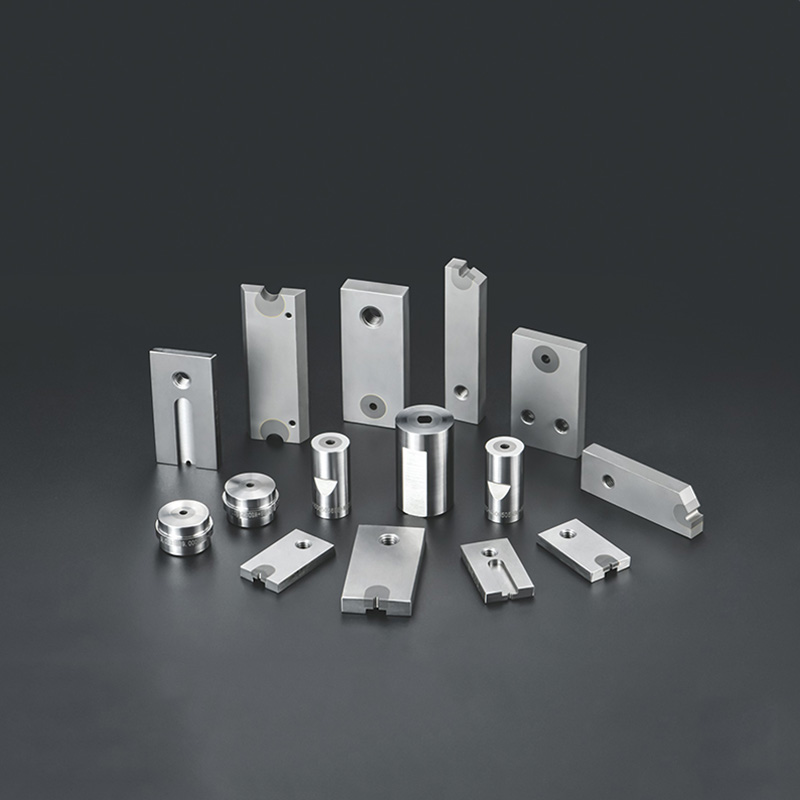Bolt Dies are essential tools for creating external threads on rods, bolts, or other cylindrical objects. Among the two main types—adjustable Bolt Dies and solid Bolt Dies—there are specific distinctions that make each suitable for different scenarios. Below is a detailed comparison between adjustable and solid Bolt Dies, highlighting their advantages, use cases, and ideal applications.

Overview of Adjustable Bolt Dies
Adjustable bolt dies are designed to allow minor modifications to the thread size. This adjustability is achieved through a split design where the die can be slightly expanded or contracted by tightening or loosening an adjustment screw. This feature provides flexibility when creating threads, as it enables fine-tuning to achieve a more precise fit.
Advantages of Adjustable Bolt Dies:
Versatility: One of the key benefits of adjustable dies is their ability to make slight adjustments to thread dimensions, which is useful when dealing with wear, imperfections, or slight variations in material.
Fine Tuning: Adjustable dies can be used to create a tighter or looser fit by changing the die’s diameter, which is particularly useful in scenarios where precision threading is required.
Cost-Effective: For jobs that require multiple sizes of threads, an adjustable die can sometimes cover more than one exact size within a small range, reducing the need for multiple solid dies.
Ideal Scenarios for Adjustable Bolt Dies:
Prototyping and Custom Projects: When precise fit adjustments are necessary during development or for one-off projects.
Repair and Maintenance: Ideal for repairing worn or damaged threads where slight variations are needed to achieve a proper fit.
DIY and General Workshop Use: Suitable for non-production environments where small adjustments are beneficial.
Overview of Solid Bolt Dies
Solid bolt dies are single-piece tools with a fixed diameter, meaning they produce consistent and uniform threads without any adjustments. Solid dies are known for their rigidity and strength, providing a reliable solution for heavy-duty or repeated use.
Advantages of Solid Bolt Dies:
Durability and Stability: The solid construction offers greater durability and stability compared to adjustable dies, especially when threading tougher materials like steel or alloys.
Consistency: Solid dies produce uniform threads every time, making them ideal for applications requiring repeatability and accuracy.
Ease of Use: With no adjustments necessary, solid dies are straightforward to use, making them the preferred choice for mass production or standardized jobs.
Ideal Scenarios for Solid Bolt Dies:
High-Volume Production: Perfect for production lines where the same size thread needs to be replicated multiple times without deviation.
Industrial and Heavy-Duty Applications: Preferred for threading hard materials where strength and rigidity are crucial.
Precision Engineering: Suitable for creating standardized threads in industries requiring high accuracy, such as automotive or aerospace sectors.
Comparative Analysis
| Feature | Adjustable Bolt Dies | Solid Bolt Dies |
|---|---|---|
| Thread Size Adjustment | Allows slight adjustments | Fixed, no adjustments possible |
| Ease of Use | Requires adjustment for precise fits | Ready to use, no adjustments needed |
| Versatility | Can cover a small range of sizes | Specific to one size only |
| Durability | Slightly less durable due to adjustable parts | High durability due to solid construction |
| Cost | Can be cost-effective for variable needs | Often more economical for high-volume tasks |
| Applications | Best for repairs, custom fits, and DIY | Ideal for production and heavy-duty threading |
Choosing the Right Tool
When choosing between adjustable and solid bolt dies, consider the specific requirements of the task:
Adjustable Dies: Opt for adjustable dies if the project demands flexibility in thread fitting, such as in repair work or prototyping. They are also suitable for smaller workshops that handle diverse threading tasks with limited inventory.
Solid Dies: Solid dies are the go-to for any application that demands durability, consistency, and efficiency, especially in industrial settings where time is crucial, and thread precision must be exact for safety and performance.
Both adjustable and solid bolt dies play vital roles in manufacturing and maintenance, each with its strengths. Adjustable bolt dies offer flexibility and adaptability, making them invaluable in varied, small-scale projects, while solid bolt dies shine in high-volume, precision-demanding environments where reliability is paramount. Selecting the appropriate type depends largely on the specific threading needs, material hardness, and the scale of production.
By understanding the differences between these two types of bolt dies, manufacturers, engineers, and hobbyists can make informed decisions to ensure the best possible results in their threading tasks.











